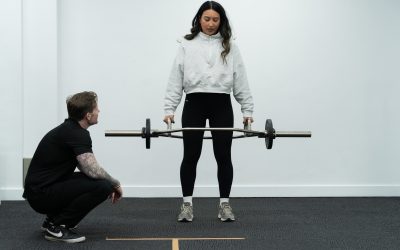sports physio & running physio
Do you have a sporting injury or want to perform better?
Whether you play footy, netball, train in a gym, or follow the black line at your local pool, injuries are commonly experienced by those active in any sport. Are you struggling with an injury. Are you worried you might be told to stop exercising? We won’t do that. We want to keep you moving and get you back doing what you love.
At Bodyfit Physio we can assist you in the assessment and management of sports and musculoskeletal injuries. Our physiotherapists are skilled in assessing and treating injuries sustained from sport and work closely with you to get you back to 100% – or even better – while also helping prevent future injury.


We love to treat
- Running Injuries
- Osgood Schlatter’s
- Severs Disease
- Adolescent and children in sport
- And more!
Meet your strength and fitness physio Daniel
Daniel our sports physio has a great passion for strength training, HIIT training and general gym workouts. He is your guide when it comes to crafting a personalised workout plan inclusive of strength, technique and mobility. Daniel loves to help optimise your sporting performance by working on sports specific strength and conditioning or running technique. Daniel excels at treating injuries from running, workouts or sports, as it’s likely he has experienced something similar personally before! Find more information about Daniel
Hi, I’m Daniel.
Strength training has always been a passion of mine, always finding its way back into my life. Laugh if you want, I sure do, but I remember watching WWE Raw & Smackdown when I was in primary school wanting to be as big as the wrestlers. When I was old enough, my parents got me a gym membership and the rest is history.
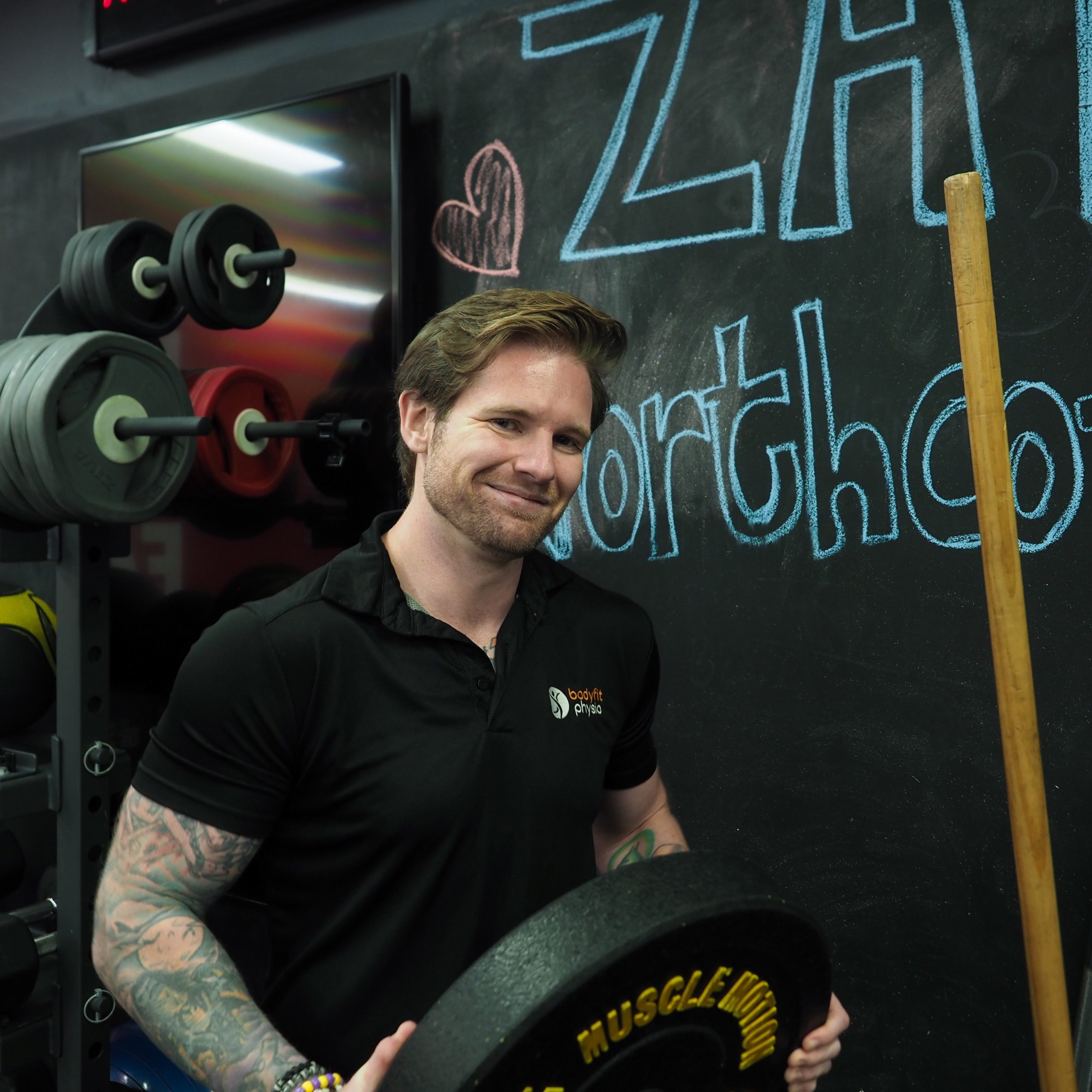
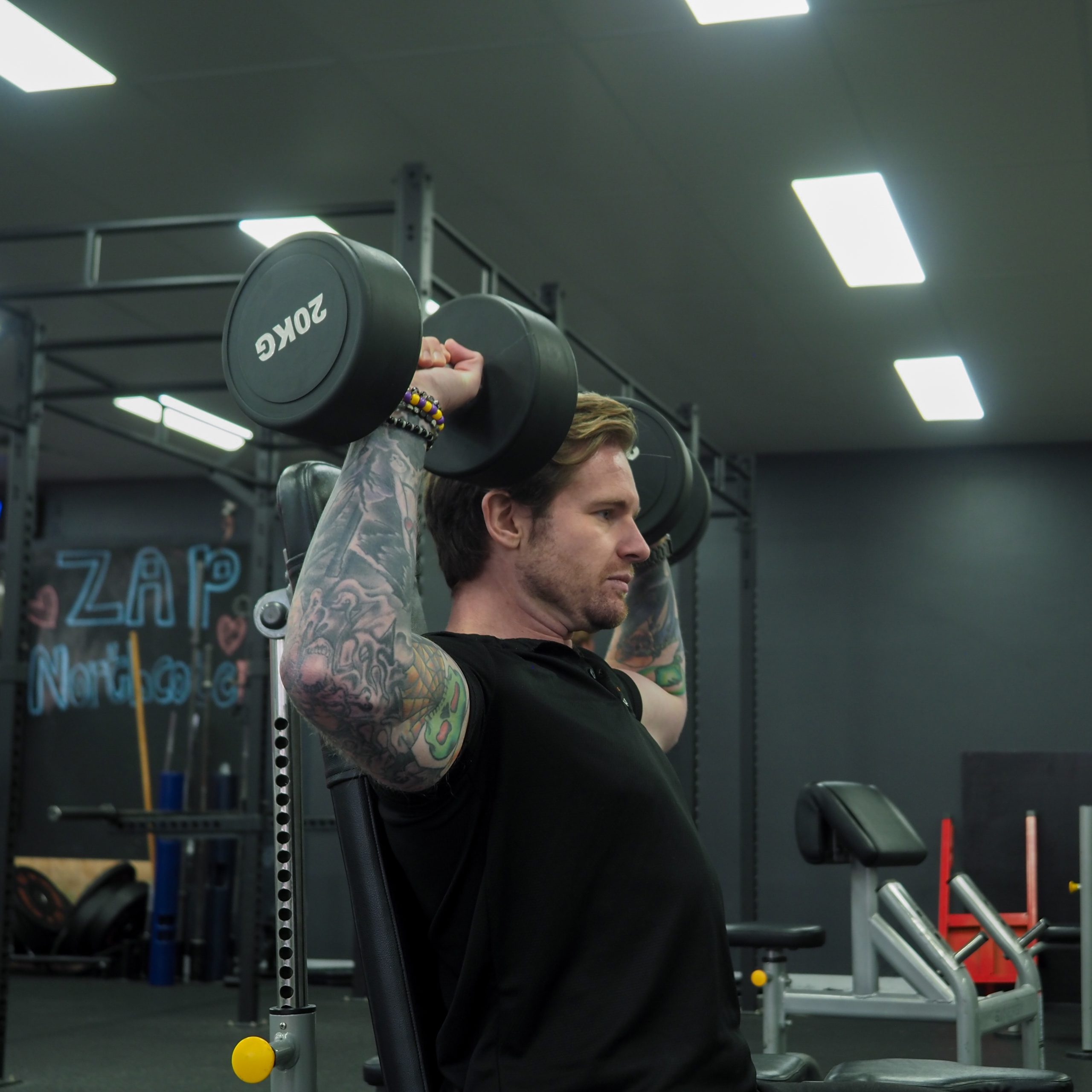
more about daniel
Name a sport, I’ve played it – from basketball, AFL and Ice hockey to running marathons. Running is a massive part of my life, I hit the pavement 4-5 times every week. The key concepts of strength and conditioning have always weaved through my sporting endeavors. I never quite got as big as the wrestlers I saw when I was younger, but the beauty of strength training is that you can set new goals at all stages of life. The satisfaction you get from reaching something you thought was an impossible accomplishment will always be something I chase. I look forward to helping you achieve your “impossible” goals.
Over the years I had to manage multiple injuries across my shoulders, neck, lower back and knees. Rest assured, the last thing I intend to do is disrupt your training during challenging times. My goal is to keep you moving and get you stronger as we rehab your injury
Whether you want to start a journey to look like Thor, keep pace with Usain Bolt, or simply feel stronger and improve your everyday fitness, book with me now and lets begin!
Meet your running physio Hilary
With a wealth of experience in running, including participation in cross-country and international competitions as a Division 1 College Runner in the USA, Hilary is your go-to for all physiotherapy-related inquiries concerning running injuries and workout plans. Whether you’re a casual jogger or a competitive athlete, Hilary is here to help you achieve your running goals. Find more information about Hilary
Hi, I’m Hilary.
Since I was a little kid, I’ve been passionate about running. I’ll always remember sitting in the stands of the Commonwealth Games in Melbourne as an 8-year-old watching the track, knowing this was the sport I wanted to try. Fast forward 20 years and my love for running is stronger than I could have ever imagined back then.

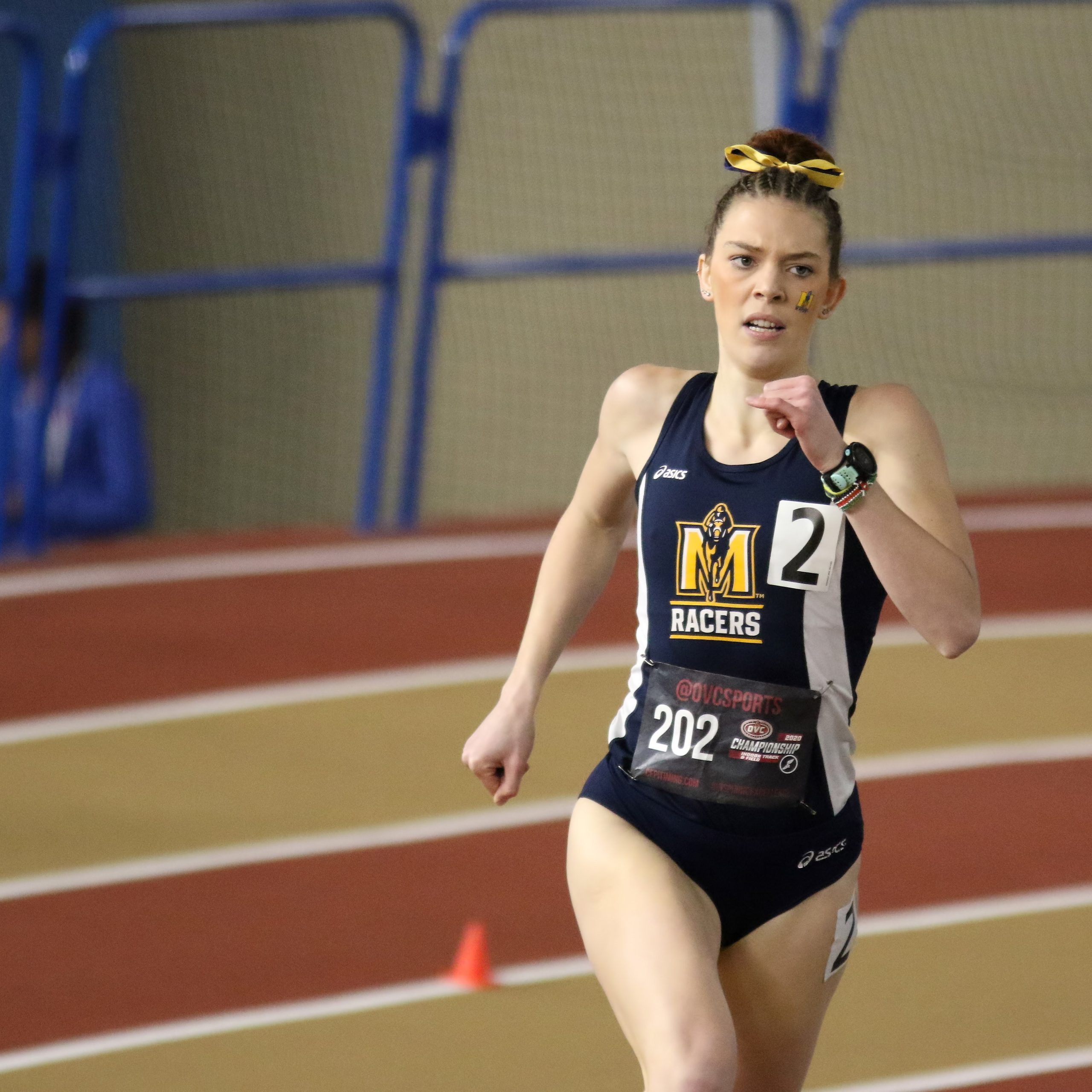
more about Hilary
My relationship with running has evolved over time, starting from the fun days of little athletics where I realized my talent, to the more serious phase in secondary school competing nationally and eventually moving to the USA for Division 1 college running at 19.
My journey in running hasn’t been entirely injury-free, and from those experiences, I gained a tremendous admiration for physiotherapists and the role they could play in someone’s life. Navigating the challenges of not being able to run due to injury brought me to where I am today, establishing myself as a physiotherapist treating all kinds of sports and running-related issues. Over time, I became a big believer in running recovery, as opposed to taking a break from running due to injury. So, whether you are young, old, fit, injured, or an elite athlete I want to help you get back to running – whether that is to achieve personal milestones or to compete at nationals!
What to expect
Rehabilitation and education are essential to your rapid recovery. Our physiotherapists use an evidenced based approach to rehabilitation. Your physio will provide you with an individualised exercise program, appropriate progressions and a return to sport plan. We work with you to make your personalised plan easy and effective.
Do you want to improve your performance? Our digital dynamometry enables accurate monitoring of strength. A personalised program can improve your power, speed, endurance or accuracy. Reach the top of your game.

are you ready to improve your health?
Choose your physiotherapist
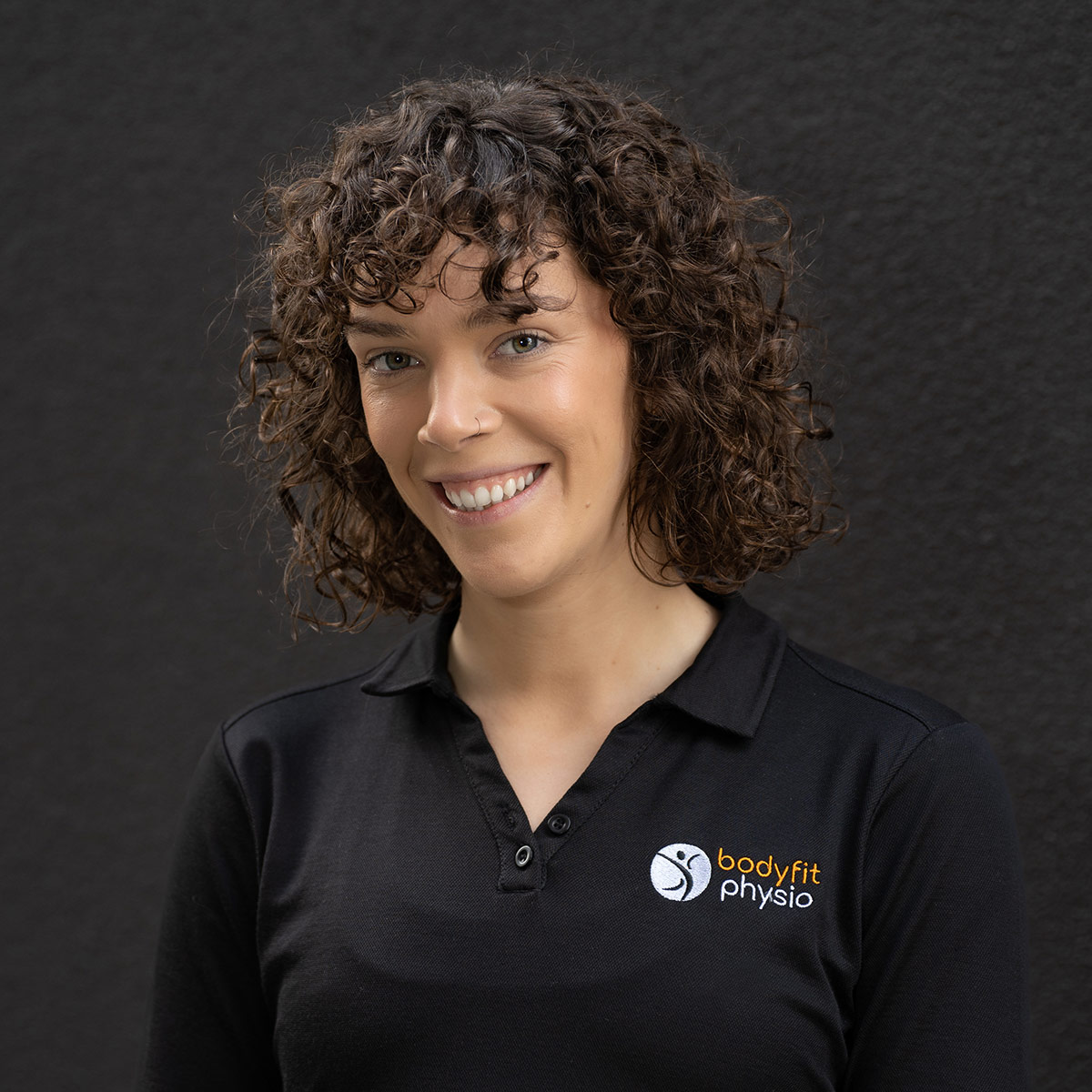
Hilary McAdam (she/her)
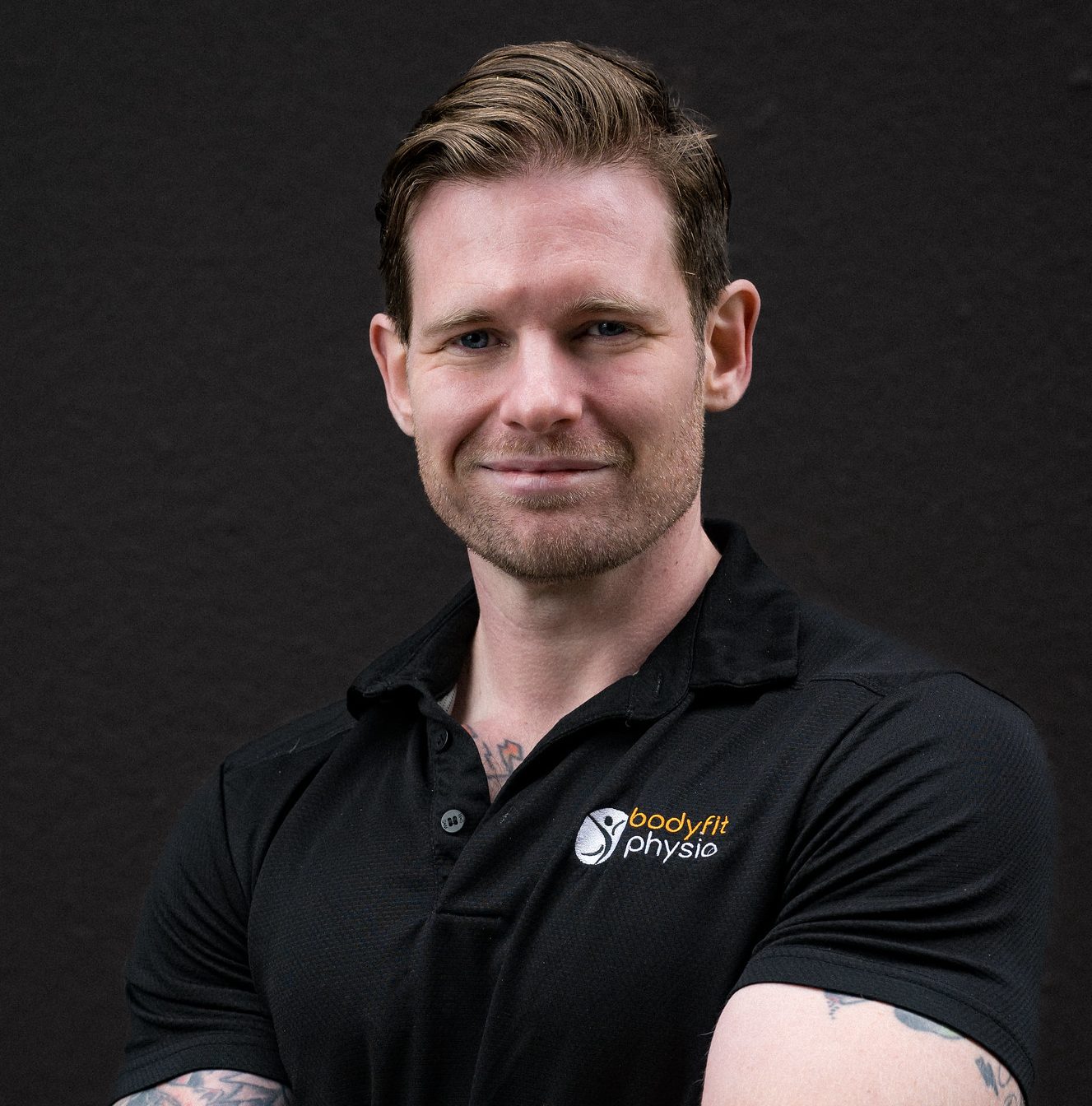
Daniel Walker (he/him)
Sport physio & Running physio Blog
Osgood-Schlatter (knee pain)
Children who are active during growth spurts may experience knee pain that seems to be worse when they’re exercising and having fun. Osgood-Schlatter disease (OSD) usually occurs due to the high load and intensity of certain sports such as gymnastics, running and...
Why should I start weight training?
Strength is needed in our day-to-day life. Building full body muscle strength can make daily activities feel that bit easier and improve your ability to move. Weight training is strength training While many people associate gyms with bodybuilders or athletes, the...
How can I resolve my running injury AND keep running?
Around 80% of running injuries can be due to overuse and training errors. Our tips will help you find your baseline and guide your recovery. How do you feel when you can’t run? If you're reading this you've probably fallen victim to injury and niggles at some point...
frequently asked questions
do I need a referral for physiotherapy?
No referral is needed for Physiotherapy. GPs frequently recommend physiotherapy, but a referral is not needed unless you are receiving funding under a GP management plan, GPMP (or Team Care Arrangement, previously known as an EPC). See the next answer for more details about the GPMP.
what should I expect in a physiotherapy assessment?
The first question we ask is “What are your aims for physiotherapy?”
We want to work with you in a way that is most helpful for you. Your physiotherapist will take a detailed history, asking you a number of questions about what has been happening for you. They will conduct a thorough assessment of your joints, posture, strength and any specific activities and movements that are relevant to your issue.
Common management approaches we use:
- Problem solving around how to best manage your symptoms / issues
- Sharing exercises that you can do at home so that you can help yourself
- Hands on treatment to improve your symptoms and mobility
- Supervised specially tailored exercise with our Pilates equipment to help you build specific strength in a supported environment if you and your physio think this would be helpful for you.
is physiotherapy covered under medicare?
Physiotherapy is only covered under Medicare under a GP management plan, GPMP (or Team Care Arrangement, previously known as an EPC). This is a specific program for people who have a chronic and complex medical condition. It provides a rebate of $57 for up to 5 sessions total per calendar year for allied health services such as Physiotherapy, Dietetics, Podiatry and more. Your GP can tell you if you are eligible for the plan. We have limited bulk billing appointments available for concession card holders.
can I use my private health insurance?
The majority of our clients are privately funded. Many have private health insurance which can be claimed on the spot with our HICAPS terminal.
can I access physio under NDIS, workcover, TAC, DVA
Yes we are able to bill directly for NDIS, Workcover, TAC, DVA.
what should I bring with me / wear
It is helpful for you to bring any relevant letters or reports regarding your issue or investigations you have had done.
Ideally wear clothes that allow you to move and allow the body part you would like addressed to be seen. We have shorts available in case you forget. Avoid dresses for low back pain, collars for neck pain and jeans for knee pain.
If you have a foot or running issue, please bring your usual shoes.

Sana Atik (she/her)
B Physio
Sana graduated with a Bachelor of Physiotherapy from Australian Catholic University in Brisbane. She is a dedicated physiotherapist with a passion for holistic healthcare.
Prior to physiotherapy, Sana built a decade-long foundation in the wellness field, working as a qualified massage therapist, yoga teacher and Pilates instructor. This diverse experience has shaped Sana’s comprehensive, integrative approach to physiotherapy, combining manual therapy, exercise prescription, Pilates, breathwork, and yoga restorative practices to meet the unique needs of each individual.
Sana has also worked in both acute and rehabilitation settings, where she managed and treated a wide range of complex and general conditions including orthopaedic, spinal, cardiac, neurological, reconditioning and chronic conditions.
Sana is passionate about treating musculoskeletal injuries, rehabilitation, pre- and post-operative care, chronic illness management, and hypermobility. She is deeply committed to supporting clients through every stage of their recovery journey.
Outside of the clinic, Sana enjoys going to the gym, practicing yoga, exploring nature, learning Italian and spending quality time with family and friends.
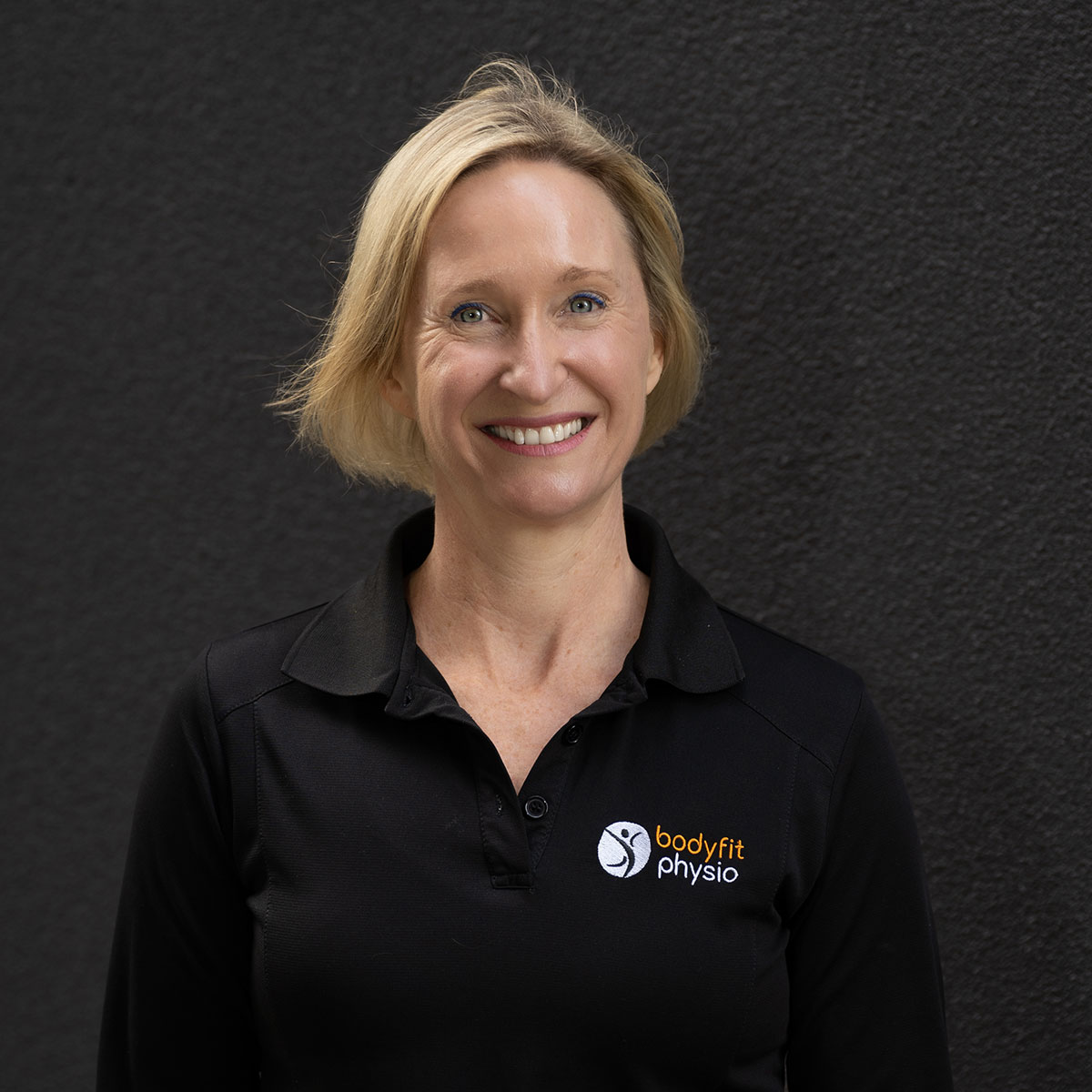
Juliet Hall (she/her)
Team leader. BSc (Physio)
Juliet loves working with her amazing team to provide high quality physiotherapy care across the clinic. Since graduating from Curtin University in Perth Juliet has gained more than 25 years of experience in all fields of physiotherapy. She finds her broad experience a valuable asset in providing a holistic approach to her client’s health. We love to be able to provide a space where everyone feels safe and cared for. Mums can bring their children to classes so that they can look after themselves. Please tell us what you need to assist you on your journey towards better health.
Juliet is passionate about advocacy for individuals or groups whose needs are not being met within the current system. She spearheaded facilitating the development and roll out of a lecture series for physiotherapists about hypermobility disorders. The Bodyfit Physio team is working to connect hypermobility practitioners through in person and online collaboration. The Bodyfit Paediatric team is working to increase awareness about Developmental Coordination Disorder (DCD), starting with maternal health nurses and Paediatricians, with a view to targeting kinders and schools in the future.
Juliet finds a combination of Pilates, strength training at the gym and taking time out every week just for her to be very beneficial for her own self-care. Juliet primarily works in conjunction with other physios in order to try and have the greatest impact. To book a time with Juliet and her staff please contact 9481 2348. Email Juliet.

Emilija Olsen (she/her)
BAppSc, MPhysioPrac
Emilija graduated with a Masters in Physiotherapy Practice from La Trobe University. Emilija's love of classical ballet and keen interest in human biology and anatomy were the basis of her original decision to become a physiotherapist.
Emilija enjoys incorporating exercise, manual therapy and education to achieve the best possible outcomes for her patients. Emilija is passionate about assisting women on their pre and post-natal journeys. In 2020, she completed a course in the latest management of diastasis recti (abdominal separation). She enjoys working with mothers and expectant mothers to improve their quality of life and achieve their individual goals. Emilija has assisted mums with goals such as safely returning to exercise, increasing strength to be able to lift and carry their baby, reducing pain and improving pelvic floor and abdominal function.
Emilija always works with clients in their own preferred style. Many of her patients find clinical Pilates to be an effective way to achieve their goals. Emilija was selected to undertake a physiotherapy placement with the Australian Ballet during her final year of study. In addition to her 17 years of dance experience, this opportunity allowed her to enhance her knowledge and skills in the treatment of dancers.
Emilija likes treating all musculoskeletal injuries, but has a particular interest in pre and post-natal management, treating ankles, knees, back pain, neck pain, and dancers. She enjoys using Pilates in the prevention and treatment of injuries. Emilija is a dry needling certified practitioner. Emilija's name is pronounced "emma-lee-yah", but you are most welcome to call her Em. Email Emilija

Terry Wesselink (she/her)
BSc (Physio); Post Grad Cert (Pelvic floor); Cert IV TAE
Terry has over 25 years of physiotherapy experience and has post graduate qualifications in Pelvic Health Physiotherapy from the University of Melbourne.
She is joining the Bodyfit team to share her extensive experience in pelvic health with the team and to support clients who need help with continence, pelvic floor, prostate or pregnancy related issues. She is also able to assist children who have bladder, bowel or toilet training issues.
Terry previously managed the Victorian Continence Resource Centre where she ran a busy NDIS Continence assessment clinic, and helped create new resources such as the Reclaim Your Core pelvic floor booklets and the www.goagainsttheflow.org.au website to bring pelvic health awareness to young women and teens.
She has delivered numerous toilet training and pelvic floor workshops to health professionals, schools and parents and is the author of a self-help book for people with incontinence, called WeeFree Women.
Terry enjoys assisting people with complex bladder, bowel and pelvic issues. With lived and family experience of Ehlers Danlos Syndrome, she has a specific interest in helping adults and children manage the impact of connective tissue disorders and other chronic conditions on pelvic health. On weekends you will find Terry in her garden watching her bees, listening to the birds or in a nearby café enjoying a cup of coffee.

Hilary McAdam (she/her)
BSc, MPhysioPrac
Hilary is a La Trobe University graduate with a Masters of Physiotherapy Practice. She also completed an undergraduate degree in the USA whilst competing as a Division I Track and Field athlete.
Through personal experience and bouts of injury as a runner, Hilary has found a passion in improving the well-being of others and has developed a growing interest in the biomechanics of the lower limb in running with an emphasis of preventing injuries and improving technique.
Hilary also enjoys exploring movement with kids and teens and uses fun, goal-oriented games and activities to support each child, whilst drawing from experience as a swimming teacher and running youth fitness and skill development classes. She has a special interest in helping children and teens manage the impact of connective tissue disorders and those with Development Coordination Disorder (DCD). Hilary is passionate about encouraging everyone to be active and engage with the world in a physical sense and is committed to listening to each person’s story and understanding their individual goals to develop a shared plan that everyone believes in and can take ownership of. Hilary uses a mixture of both hands on and exercise-based treatment methods and enjoys using Pilates in the prevention and treatment of injuries.
Outside of the clinic you’ll find her cycling everywhere, running, playing the piano, and enjoying live music with friends on the weekend.


